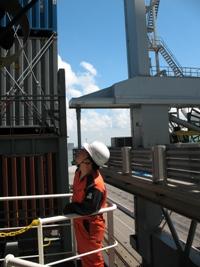
Steamship Mutual
Published: November 08, 2017

In Crystal Shipping the Philippine Supreme Court ruled that seafarers are subject to the Labour Code concept of permanent disability so that those who are unable to perform their customary work for more than 120 days are deemed totally and permanently disabled. This principle was reiterated in Remigio and in both cases the seafarers were awarded US$60,000 in permanent disability benefits. (See Philippine Law - Permanent Disability Rule Part-Clarified)
A Motion for Reconsideration has been filed before the Supreme Court, First Division, in the Remigio case. An answer is expected in early 2008. In the interim, the Supreme Court has handed down an interesting decision in Maris C. Palisoc v Easy Ways Marine, 1997: This case involves a crewmember suffering with left renal colic gallstone impairment. He was repatriated to the Philippines and subsequently went on to make a claim for total disability payment of US$25,000. This was on the basis of the assessment of the seafarer’s personal physician who found him to be suffering from a disability grading of Grade 6. Palisoc claimed that he was entitled to US$25,000 in accordance with the terms of the pre-2000 POEA.
The Labour Arbiter agreed with Palisoc’s view. However, on appeal the National Labour Relations Court, First Division, set aside the award and absolved the owners from liability on the grounds that the company designated physician found the seafarer as fit to work. After taking his case to the Court of Appeals, and losing, Palisoc’s claim was then appealed to the Supreme Court.
On 11 September 2007 the Supreme Court delivered its verdict: Permanent disability refers to the inability of a seaman to perform his job for more than 120 days. Loss of function of a bodily part is not necessary for a permanent disability status to be awarded. However, the Supreme Court also ruled that where a crewmember is deemed to be permanently disabled as a consequence of 120 days' absence from work the disability rating that follows should not automatically be a full Grade 1 disability payment but be determined by the company designated doctor. In this case the company doctor had ruled that the crewmember was fit for duty and so the shipowner was only liable to pay sick wages and medical expenses - not the Grade 6 benefit of $25,000 claimed.
This is a very important and welcome ruling because it now means that a crewmember will not be automatically entitled to the Grade 1 payment of $60,000 in the event that he is absent from work for 120 days or more. Where, for example, the lowest grade (Grade 14) is applied then the award will only amount to $1,870 – a significant financial saving to shipowners.
It appears that the Supreme Court is now gradually rectifying the problems resulting from the original 120 day ruling in Crystal Shipping. Whilst the current position remains that 120 days absence means that a seaman is considered permanently disabled, at least in the case of the pre-2000 POEA the Court has recognised that this should not automatically justify a Grade 1 disability payment. The payment will be dependent upon the grading determined by the company doctor. This is a real improvement and a big step towards solving the 120 day problem.
Aspects of this decision are still being appealed and it is hoped that the Supreme Court may ultimately completely reverse the Crystal Shipping ruling.
Further developments as at August 2008 are reported in Filipino Crew Claims - "120 Day" Update


